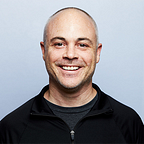It’s About More Than Washing Your Hands During COVID-19 — It’s About Accessibility of Infrastructure
By Matt Wittek, Founder and CEO, Fill it Forward
Toky, 7, and his friends washing their hands at the handwashing station of the sanitation block, Manantenasoa primary school, Fihaonana commune, Analamanga region, Madagascar, February 2019. Credit: WaterAid/ Ernest Randriarimalala
October 15th is Global Handwashing Day. This year, as we navigate the current pandemic, this occasion feels more relevant than ever before.
The World Health Organization and CDC have responded to the global outbreak and community transmission of COVID-19 by instructing the public to wash their hands more regularly to reduce the spread of the virus. But for the nearly 900 million individuals globally who lack access to safe water for sanitation, this seemingly simple recommendation is still out of reach — even during this critical moment.
As the founder and CEO of a company that partners directly with international charitable organizations, I have seen firsthand the impact the pandemic has had on clean water initiatives and development work across the world.
Budgeting for sustainability and charitable donations may have been put on the back burner this year by many, but a lack of access to safe water continues to be a serious global issue. The first step to addressing this issue is understanding it’s about more than regularly washing your hands during COVID-19 — it’s about the accessibility of infrastructure and appropriate education.
On one hand, handwashing with soap and water is one of the most effective ways to stop the spread of coronavirus. On the other, without the infrastructure and education needed to ensure all people have widespread access to clean water resources, developing countries and marginalized communities in our own backyard will continue to suffer.
Investing in clean water initiatives and development work now will help curb the effects of the virus later. Volunteers and employees of charitable organizations are ready and compelled to continue to do altruistic work at this time when the world needs it most.
Our longest-standing partner, WaterAid Canada, for example, is an international charitable organization focused on integrating water, sanitation and hygiene (WASH) programs (in countries such as Madagascar, Tanzania, and India) by developing sustainable infrastructure for people in need.
Another partner of ours, Water First, has recognized this is an issue that hits home for fellow Canadians as one in five First Nations communities in Canada are under a boil water advisory.
Herein lies the opportunity — charitable organizations can’t achieve what they need to without proper financial support, but individuals and businesses can help. They can make a measurable impact in helping solve the global water crisis. In doing so, they can also achieve their philanthropic goals while contributing to the world at large. In this situation, everybody can win.
But the time to act is now.
In the wake of the COVID-19 pandemic, the charitable sector continues to support arts, culture, schools, effects of various social issues, and more. The giving patterns in Canada indicate our charitable sector is headed for its own crisis, as the number of Canadians who give and the average monetary amount of their donations have been regularly decreasing.
Fortunately, there are ways to reverse this trend.
A clear bright stream of water gushing out from the PVC pipe in Ambohibary village, Tsiroanomandidy district, Madagascar. Credit: WaterAid/ Ernest Randriarimalala
I recently read companies spend $125 billion annually on corporate gifts and the average Canadian plans to spend roughly $643 on holiday gifts.
Last year, 37 percent of Canadians acknowledged that they would donate more if they knew how their money would be spent by charities. Supporting charitable organizations with concrete donation outcomes — such as supplying handwashing stations directly to families in need or committing to bringing clean water to communities will help you visualize where your money is going so you can feel confident in your decision to donate.
We need to protect and support the charitable sector. Charities are the backbone of uplifting vulnerable communities so that people around the world can enjoy the desirable quality of life we all deserve.
It’s not too late.
Whether your corporate team is rallying around the United Nations Sustainable Development Goals or you’re an individual supporting one of the 3,500+ B Corps using business as a force for good, the pandemic has provided us a unique opportunity to rethink how we give back and direct help where it’s needed most.
I believe that together we can maintain, and even strengthen, our collective impact by rethinking how we give back — while supporting people who still need basic access to clean water, hygiene and sanitation today.
About the Author
Matt Wittek, Founder and CEO of Fill it Forward, is a social entrepreneur on a mission to inspire the world to reuse. The Fill it Forward Company has helped eliminate millions of single-use items from landfills and our oceans. Since 2012, Fill it Forward has helped fund hundreds of clean water projects benefiting communities across the world in an effort to alleviate the global water crisis.
Fill it Forward created the Always Giving Collection as a way to raise additional donations as a direct response to the current water crisis made worse by the pandemic. We’ve set an ambitious goal of raising $100,000 for our charitable partners because we recognize that the work they’re doing is absolutely critical. You can help us unlock this goal.
Every purchase unlocks a five-dollar donation (to projects in the USA, Canada, India, Ethiopia, or the Dominican Republic) plus our new app experience allows your team to track their environmental impact and support meaningful giving projects every time they reuse.
Website: https://www.fillitforward.com/
